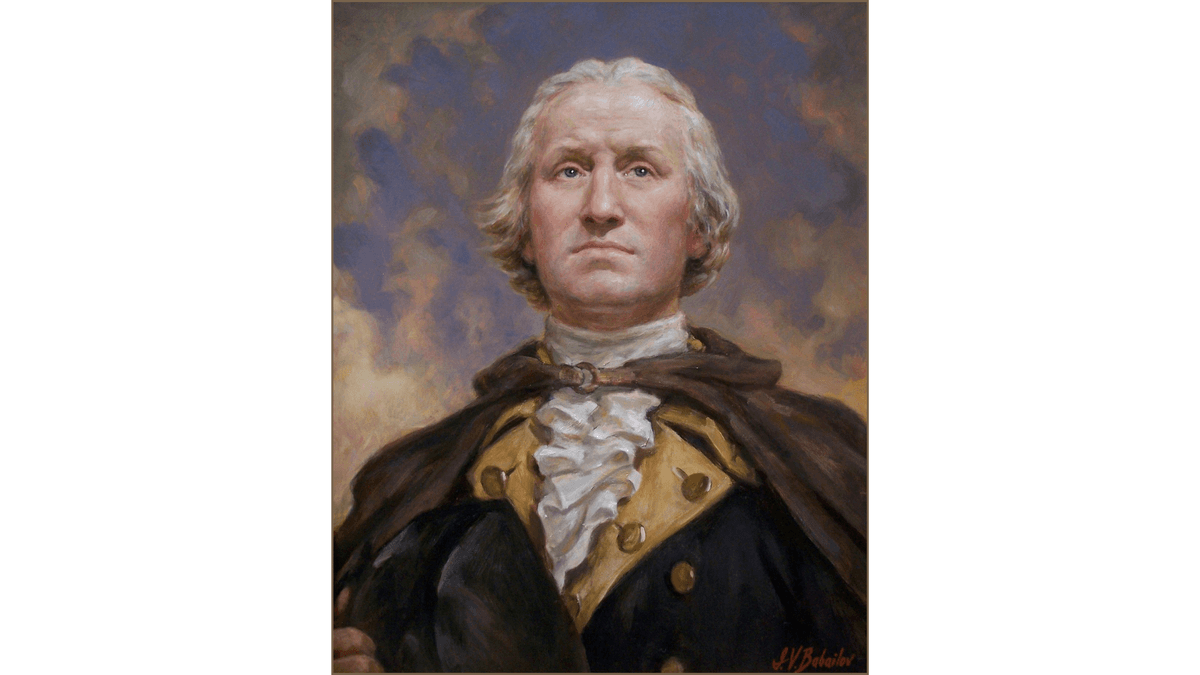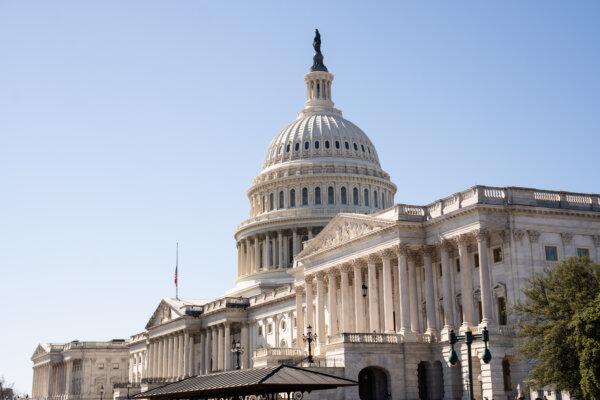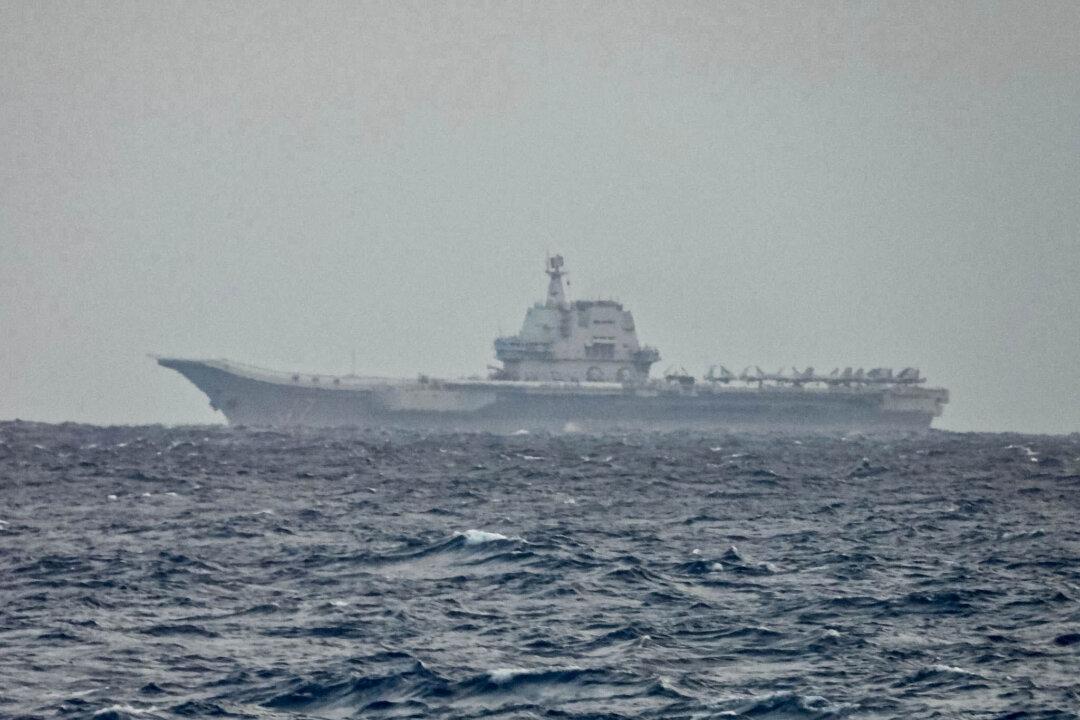What to Expect From Trump’s Global Tariffs
Experts say the road to reciprocity will be bumpy but necessary. One, in particular, expects to see early signs of an economic boom before the 2026 midterms.

Samuel Taylor Coleridge’s ‘This Lime-Tree Bower My Prison’
An unfortunate accident led the 18th-century poet Samuel Taylor Coleridge to craft a beautiful ode to nature and friendship.

‘The Penguin Lessons’: A Man, a Bird, and a New Perspective
A teacher comes to a boarding school to escape his past in this entertaining and deeply moving film.

A Heartbreaking, Inspiring Retelling of the Chosin Reservoir Withdrawal
Brutal and graphic, Joseph Wheelan’s ‘The Farthest Valley’ is a necessary work of one of America’s most heroic military moments.
Most Read
Top Stories
Voters Head to Polls in 3 Key Elections in Florida and Wisconsin: What to Watch For
The races could decide the composition of the House of Representatives and are being slated as a referendum on Trump’s term so far.
FTC Chairman Raises Concerns Over Sale of 23andMe DNA Data
The company, which filed for Chapter 11 bankruptcy protection, says that ‘data privacy will be an important consideration in any potential transaction.’
4th Missing US Soldier Found Dead in Lithuania
The discovery was announced on Tuesday afternoon following a weeklong recovery effort.
China’s Role in US Fentanyl Crisis Directed by Regime Leadership, Expert Says
Insiders say fentanyl is at the core of the Chinese Communist Party’s bid to take revenge on the West, and America makes a perfect enemy.
US Health Agencies Start Terminations
Health Secretary Robert F. Kennedy recently announced 10,000 workers would be fired.
Judge Dismisses COVID Lawsuit Against Former New York Gov. Cuomo
A proposed class-action lawsuit accused the former governor of mishandling COVID-19 patients in nursing homes.
AG Bondi Orders Prosecutors to Seek Death Penalty in UnitedHealthcare CEO Killing
Attorney General Pamela Bondi has directed federal prosecutors to pursue capital punishment in the alleged politically motivated slaying of Brian Thompson.
Trump Says Agency Heads Will Work With DOGE After Elon Musk Leaves
The president on Monday provided an update on DOGE and Musk.
Finland Announces Plan to Pull Out of International Landmine Treaty
The move put the Finnish government on the same path as Poland and the Baltic states of Estonia, Latvia, and Lithuania.
24 States Sue HHS Over Cancellation of Billions in COVID-Era Funding
The states said in the suit that ’the foreseeable end of the COVID-19 pandemic is not a lawful basis to terminate the funding.’
ICE Says University of Minnesota Student Was Detained Over Drunk Driving
‘This is not related to student protests,’ a Homeland Security official said.
▶Everything About Shen Yun Is ‘Glorious and Divine,’ Says Singer
On March 26, Shen Yun Performing Arts showcased ancient Chinese culture through a performance of classical Chinese dance, music, and storytelling.
Maine Gets Final Warning on Males in Female Sports
The U.S. Education Department says failure to exclude boys and men from female sports could result in the Justice Department initiating enforcement proceedings.
Senate Democrats Seek to Undo Trump’s Tariffs on Canadian Goods
‘These tariffs, I think, are hopefully temporary,’ Senate Majority Leader John Thune said.
DOJ Says ‘Administrative Error’ Resulted in Deportation of Gang Member
The deportation took place on March 15.
Senate Judiciary Chair Introduces Bill to End Nationwide Injunctions
The bill seeks to limit injunctive relief to parties before the court.
Trump Confirms Upcoming Trip to Saudi Arabia, Qatar, and UAE
The trip to Saudi Arabia is expected to focus on the country’s possible investments in the United States.
Tracking Trump’s High Level Appointments, Senate Confirmations
The Senate is undertaking the confirmation process for the president’s new administration.
Argentina’s Poverty Rate Plunges in Boost for President Milei
The figure has dropped from 52.9 percent in the first half of 2024 to 38.1 percent in the latter half of last year.
DNC, Schumer Sue Trump Over Order Targeting Illegal Immigrant Voting
The order is unconstitutional, Democrats allege.
When George Washington Calmed a Mutiny
In this first article of the series “When Character Counted,” we visit a moment when a pair of spectacles helped save the American experiment of democracy.
Special Coverage
Special Coverage




























































![[PREMIERING 4/1, 9PM ET] Whistleblower Reveals Shocking UN Corruption: Emma Reilly](https://www.theepochtimes.com/_next/image?url=https%3A%2F%2Fimg.theepochtimes.com%2Fassets%2Fuploads%2F2025%2F03%2F31%2Fid5834635-250328-ATL_Emma-Reilly_HD_TN-600x338.jpg&w=1200&q=75)
















































